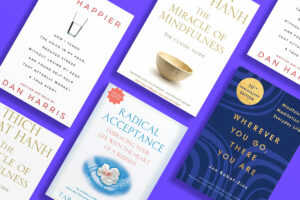
Social media has become an integral part of our daily lives, offering a platform for communication, entertainment, and information sharing. While it has numerous benefits, the impact of social media on mental health has become a topic of increasing concern. This article explores how social media affects mental health, the potential risks and benefits, and strategies for maintaining a healthy relationship with these platforms.
The Rise of Social Media
Over the past decade, social media platforms like Facebook, Instagram, Twitter, and TikTok have grown exponentially. These platforms have transformed the way we connect with others, access news, and share personal experiences. According to recent statistics, there are over 4.2 billion social media users worldwide, with the average person spending approximately 2.5 hours per day on these platforms.
Positive Impacts of Social Media
1. Enhanced Connectivity
Social media enables people to stay connected with friends and family, regardless of geographical distance. It allows for instant communication and the ability to share life updates, fostering a sense of closeness and belonging.
2. Access to Information and Support
Social media provides a wealth of information on various topics, including mental health. Users can access educational content, join support groups, and connect with mental health professionals. This access to information and support can be particularly beneficial for those struggling with mental health issues.
3. Opportunities for Self-Expression
Platforms like Instagram and TikTok offer creative outlets for self-expression. Users can share their talents, interests, and personal stories, which can boost self-esteem and provide a sense of accomplishment.
Negative Impacts of Social Media
1. Comparison and Low Self-Esteem
One of the most significant negative impacts of social media is the tendency for users to compare themselves to others. Seeing curated, idealized versions of other people’s lives can lead to feelings of inadequacy, low self-esteem, and body image issues. This phenomenon, often referred to as “social comparison,” can have detrimental effects on mental health.
2. Cyberbullying and Harassment
Social media platforms can be breeding grounds for cyberbullying and harassment. Negative comments, threats, and spreading of false information can lead to emotional distress, anxiety, and depression. Young people, in particular, are vulnerable to the harmful effects of cyberbullying.
3. Addiction and Time Management
Excessive use of social media can lead to addiction, characterized by compulsive checking of platforms and a preoccupation with online interactions. This addiction can interfere with daily responsibilities, academic performance, and sleep patterns, contributing to stress and anxiety.
4. Fear of Missing Out (FOMO)
The fear of missing out (FOMO) is another negative impact of social media. Constant exposure to others’ activities and events can make users feel left out or inadequate, leading to anxiety and dissatisfaction with their own lives.
The Role of Algorithms and Design
Social media platforms use algorithms designed to maximize user engagement. These algorithms prioritize content that elicits strong emotional responses, such as outrage or excitement, which can contribute to the spread of misinformation and polarizing content. Additionally, features like infinite scrolling and notifications are designed to keep users hooked, potentially exacerbating the negative impacts on mental health.
Strategies for Healthy Social Media Use
While social media can have negative effects on mental health, there are strategies that users can employ to maintain a healthy relationship with these platforms.
1. Set Boundaries
Establishing boundaries around social media use is crucial. This can include setting specific times for checking social media, limiting usage to certain periods of the day, and turning off notifications. Using built-in features on smartphones to monitor and limit screen time can also be helpful.
2. Curate Your Feed
Be mindful of the content and accounts you follow. Unfollow or mute accounts that make you feel negative or anxious. Instead, follow accounts that inspire you, promote positivity, and provide valuable information.
3. Practice Mindfulness
Approach social media use with mindfulness. Pay attention to how certain content makes you feel and why you are using social media at a particular moment. Mindfulness can help you make more intentional choices about your social media consumption.
4. Take Regular Breaks
Taking regular breaks from social media can help reduce its negative impact on mental health. Digital detoxes, where you disconnect from all social media platforms for a set period, can help reset your relationship with these tools and provide mental clarity.
5. Engage in Real-Life Activities
Balancing online interactions with real-life activities is essential. Spend time engaging in hobbies, exercising, and connecting with friends and family in person. These activities can provide fulfillment and reduce the negative effects of social media.
Seeking Professional Help
If social media use is significantly impacting your mental health, it may be beneficial to seek professional help. Mental health professionals can provide guidance on managing social media use and addressing underlying issues such as anxiety, depression, or low self-esteem. Many therapists and counselors offer online sessions, making it easier to access support.
Case Studies and Research
Numerous studies have explored the impact of social media on mental health. For instance, a 2018 study published in the journal Computers in Human Behavior found that limiting social media use to 30 minutes per day can significantly reduce feelings of loneliness and depression. Another study published in The Lancet in 2019 linked high social media use with increased rates of anxiety and depression among adolescents.
These studies highlight the importance of mindful and moderated social media use. By understanding the potential risks and taking proactive steps to mitigate them, users can enjoy the benefits of social media without compromising their mental health.
Leveraging Social Media Positively
Despite its potential drawbacks, social media can be leveraged positively to support mental health. Here are some ways to use social media for good:
1. Mental Health Advocacy
Social media can be a powerful tool for raising awareness about mental health issues and advocating for change. Many organizations and individuals use platforms like Twitter and Instagram to share resources, promote mental health campaigns, and reduce the stigma surrounding mental health.
2. Online Support Communities
There are numerous online communities and support groups where individuals can connect with others who share similar experiences. These communities can provide emotional support, practical advice, and a sense of belonging.
3. Educational Content
Following mental health professionals and organizations on social media can provide access to valuable educational content. From tips on managing stress and anxiety to information on various mental health conditions, these resources can be incredibly beneficial.
Real-Life Stories
Hearing real-life stories of how social media has impacted individuals can provide a deeper understanding of its effects on mental health. Here are a few examples:
1. Anna’s Story
Anna, a high school student, found herself constantly comparing her life to the seemingly perfect lives of her peers on Instagram. This led to feelings of inadequacy and depression. After seeking help from a counselor, Anna learned to set boundaries around her social media use and to focus on her own achievements and happiness rather than comparing herself to others.
2. Mark’s Experience
Mark, a young professional, used social media to stay connected with friends and family. However, the constant barrage of news and political debates left him feeling anxious and overwhelmed. Mark decided to take a break from social media and found that his anxiety levels decreased significantly. He now practices mindful social media use and focuses on positive and uplifting content.
3. Support Through Social Media
Sara, a mother of two, struggled with postpartum depression. She found solace in an online support group for new mothers on Facebook. Through this community, Sara connected with other mothers who shared similar experiences, received emotional support, and accessed valuable resources for managing her mental health.
The Impact of Social Media During the COVID-19 Pandemic
The COVID-19 pandemic has significantly increased reliance on social media for communication and information. While social media has provided a crucial means of staying connected during lockdowns and social distancing measures, it has also amplified some of the negative effects on mental health.
Increased Anxiety and Stress
The constant influx of news about the pandemic, coupled with misinformation and conspiracy theories, has heightened anxiety and stress for many individuals. Social media platforms have had to take measures to combat the spread of false information and provide accurate updates on the pandemic.
Social Isolation
While social media has helped bridge the gap of physical distance, it cannot fully replace in-person interactions. Prolonged reliance on digital communication can lead to feelings of social isolation and loneliness. It’s essential to balance online interactions with real-life connections where possible.
Positive Initiatives
On the positive side, social media has facilitated numerous positive initiatives during the pandemic. Virtual support groups, online therapy sessions, and mental health campaigns have provided essential support to those struggling with the mental health impacts of COVID-19.
Future Directions
As social media continues to evolve, it is essential to consider its future impact on mental health. Here are some potential directions and considerations:
1. Improved Algorithms
Social media companies can work on developing algorithms that prioritize well-being over engagement. By promoting positive and informative content and reducing the emphasis on sensational or divisive posts, platforms can create a healthier online environment.
2. Enhanced Digital Literacy
Educating users on digital literacy, including how to critically evaluate online content and recognize misinformation, can empower individuals to use social media more responsibly. Schools, parents, and organizations can play a crucial role in promoting digital literacy.
3. Mental Health Features
Social media platforms can incorporate features specifically designed to support mental health. For example, providing resources for users experiencing distress, offering reminders to take breaks, and creating options for users to report harmful content.
Leveraging Social Media with BookBits
For those looking to deepen their understanding of the impact of social media on mental health and explore strategies for healthier use, BookBits Audiobook Summaries offers concise summaries of top mental health books. Here are some recommended reads:
1. “Digital Minimalism” by Cal Newport
Cal Newport’s “Digital Minimalism” explores the concept of reducing digital distractions to focus on more meaningful activities. The book offers practical advice on how to declutter your digital life and develop a healthier relationship with technology.
2. “Reclaiming Conversation” by Sherry Turkle
Sherry Turkle’s “Reclaiming Conversation” examines how digital communication impacts our ability to connect with others on a deeper level. The book advocates for reclaiming the art of face-to-face conversation to improve relationships and mental well-being.
3. “10% Happier” by Dan Harris
Dan Harris shares his journey of finding balance and mental clarity through mindfulness and meditation. The book provides insights into how these practices can help mitigate the negative effects of social media and enhance overall mental health.
By utilizing resources like BookBits, you can gain valuable insights from these and other top mental health books, helping you navigate the complexities of social media use and maintain a healthy, balanced life.
Conclusion
The impact of social media on mental health is a complex and multifaceted issue. While social media offers significant benefits, such as enhanced connectivity and access to information, it also poses risks like social comparison, cyberbullying, and addiction. By employing strategies for healthy social media use and leveraging these platforms positively, users can mitigate the negative effects and harness the benefits of social media.
Maintaining a balanced relationship with social media is key to protecting and enhancing your mental health. For more insights and resources on mental health and personal development, explore BookBits Audiobook Summaries. Access concise summaries of top mental health books to stay informed and inspired on your journey to well-being.


